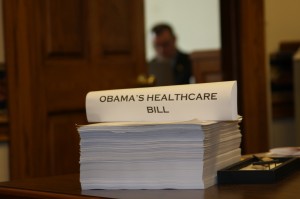October 27, 2011
 I don’t have good luck with dentists. I do my best to get recommendations. Things go along OK for awhile. Then I start getting advised to do things that don’t make sense to me. I ask questions. But I don’t get satisfactory answers.
I don’t have good luck with dentists. I do my best to get recommendations. Things go along OK for awhile. Then I start getting advised to do things that don’t make sense to me. I ask questions. But I don’t get satisfactory answers.
My current dentist knows that I came to him several years ago. Not because I was just moving to the area. But I wasn’t feeling good about how talk with my former dentist was going. So, this dentist seemed great for awhile. But last year, he recommended that I get a crown in a tooth where it seemed to me that we should start with a filling. I should have gotten a second opinion because instead, I put off doing anything, built up resentment that the dentist couldn’t explain why a crown was needed. “It will just be better in the long run” doesn’t tell me anything. I guess we could just put crowns on all my teeth and it would be better in the long run if what that means is that my natural teeth wouldn’t be wearing anymore.
OK, I should’ve gotten a second opinion last year. I didn’t. I have all the same excuses everyone has. I didn’t have time. I didn’t want to offend my current dentist. I didn’t know how to go about finding another dentist and asking for a second opinion. Yikes.
Well, this week I had my first scheduled cleaning since the crown. The technician asked me how it was going and I told her that it hurt to chew a steak on that side where the crown is… “I don’t eat much red maet,” I said, “But when I do, it hurts.”
She said, “That’s nornal. It’s new.” I should’ve known right then that things were not gonna go my way. She took exactly 12 minutes to clean my teeth and then went for the dentist. He took 15 minutes to appear. When he appeared, the technician said, “He’s Mr. Funny man today.”
He took a look and a poke and announced, or mumbled I should say, something to the technician. She said, “So you want to do the four now?” Four what, I wondered.
“Let’s do all six.” Six what, I panicked.
“Six what?” I asked.
“Fillings.”
“What?!” Mind you, I had been to the dentist six months ago. I didn’t have any new x-rays done at the current appointment. What was different today from six months ago?
“Well, you have some wear in the enamel on the top of some of your teeth. The dentin is about to be exposed in some places. I just want to prevent that.” I guess I looked skeptical as he said, “I can show you.” He handed me a mirror. I opened my mouth. He pointed to one of my incisors. “See?” I looked and, yes, I could see a dip in the enamel. Nearly six decades of living might do that, don’t you think? That’s a lot of chewing and, well, grinding my teeth–a bad habit of mine. I must have looked skeptical still as he said, “I could show you the others, but you might have to stand on your head to see them.”
“I see what you mean,” I said to the technician. “He really he is a ‘funny man’ today. What are you going to do? Why?”
“I will just put a bit of filling in there to protect the tooth. It won’t take much drilling at all. But I’ll still numb you up real good.”
I checked out. Literally and figuratively. I didn’t ask any more questions. But I didn’t make the appointment for the fillings. I have been looking and can find no research or recommendations relating to taking this action. I do find some discussions that lead me to believe that the dentist will have to etch my tooth to make the filling stick–my lay term. And that it is the first step toward the filling not sticking and then needing–a crown.
I would love to be wrong about this. I want to trust the health care professionals I pay for my care. But I need them to explain why their recommendations make sense and to respect my decisions about actions labeled ‘preventive’ care. I don’t feel either of these exists in this situation. And so, I guess it’s time to get a new dentist.
 The store, Target, supports a pharmacist’s rights not to fill these prescriptions. However, a pharmacist must direct a consumer to another Target store where the prescription can be filled. I can find no research that has been done to see how such conversations might take place or what happens when — as in the town where I live — there is one Target store. I don’t know if there is more than one pharmacist there. I don’t know if any of them object to filling these prescriptions. But if they do, what happens? How would I know? Who would tell me?
The store, Target, supports a pharmacist’s rights not to fill these prescriptions. However, a pharmacist must direct a consumer to another Target store where the prescription can be filled. I can find no research that has been done to see how such conversations might take place or what happens when — as in the town where I live — there is one Target store. I don’t know if there is more than one pharmacist there. I don’t know if any of them object to filling these prescriptions. But if they do, what happens? How would I know? Who would tell me?





